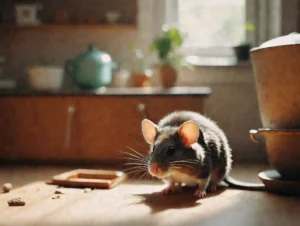Understanding Stinging Insects: A Homeowner’s Guide for Summer 2024
By XTERMIGATOR, Mascot of ABCO Pest Control in Long Island, NY
As summer 2024 approaches, homeowners in Long Island are preparing to enjoy the warm weather and outdoor activities. However, with the pleasant weather comes an unwelcome challenge: stinging insects. At ABCO Pest Control, we’re here to help you understand these pests and offer practical tips to keep them at bay.
What Are Stinging Insects?
Stinging insects are a broad category of pests that can inflict painful stings. These insects include:
– Wasps: Known for their slender bodies and aggressive nature, wasps can sting multiple times.
– Hornets: Larger than wasps, hornets have powerful stings and can be very protective of their nests.
– Yellow Jackets: Often mistaken for bees, yellow jackets are aggressive scavengers that can sting multiple times.
– Bees: While generally less aggressive, bees will sting if threatened. Honeybees and bumblebees are the most common types.
Identifying Stinging Insects
Recognizing these insects is the first step in preventing stings:
1. Wasps: Slender bodies, narrow waists, and smooth bodies. They often build nests in sheltered areas.
2. Hornets: Robust, with large, rounded bodies and white or yellow markings. Nests are usually found in trees or shrubs.
3. Yellow Jackets: Stockier than wasps, with bold yellow and black stripes. Nests can be in the ground or in structures.
4. Bees: Hairy bodies with a clear division between the thorax and abdomen. Honeybees have golden-brown stripes, while bumblebees are fuzzy and round.
Prevention Tips for Homeowners
1. Seal Entry Points: Ensure windows, doors, and vents are properly sealed to prevent insects from entering your home.
2. Keep Food Covered: Stinging insects are attracted to food. Keep outdoor food and beverages covered.
3. Properly Dispose of Trash: Use sealed trash bins to keep insects away.
4. Maintain Your Yard: Regularly trim trees and bushes, and keep your lawn mowed to reduce nesting sites.
5. Avoid Sweet Scents: Perfumes, lotions, and even certain sunscreens can attract stinging insects.
What to Do If You Encounter a Nest
1. Stay Calm: Sudden movements can provoke stinging insects.
2. Avoid the Area: Keep children and pets away from the nest.
3. Contact a Professional: Attempting to remove a nest yourself can be dangerous. Call ABCO Pest Control for safe and effective removal.
Dealing with Stings
1. Remove the Stinger: If stung by a bee, remove the stinger as quickly as possible.
2. Clean the Area: Wash the sting site with soap and water.
3. Apply Ice: Use ice to reduce swelling and pain.
4. Take an Antihistamine: This can help alleviate itching and swelling.
5. Seek Medical Attention: If you experience severe symptoms, such as difficulty breathing or swelling of the face, seek emergency medical care immediately.
Common Myths About Stinging Insects
Myth: All bees can sting multiple times.
Fact: Honeybees can only sting once, as their stinger is barbed and remains in the skin.
Myth: Stinging insects only nest in trees.
Fact: Many stinging insects, like yellow jackets, nest in the ground or in buildings.
Myth: All stings are equally painful.
Fact: Pain levels can vary depending on the insect species and the individual’s reaction.
ABCO Pest Control’s Approach
At ABCO Pest Control, we prioritize your safety and comfort. Our team of experts is trained to handle stinging insects efficiently and humanely. We use state-of-the-art techniques to locate and remove nests, ensuring your home and yard are safe for the summer.
Conclusion
As summer 2024 unfolds, stay vigilant and informed about stinging insects. By taking proactive measures and knowing how to respond, you can enjoy a sting-free season. For any pest control needs, remember that ABCO Pest Control is just a call away. Let’s make this summer safe and enjoyable together!
FAQs
Q1: What should I do if I find a nest near my home?
A: Avoid the area and contact a professional pest control service like ABCO Pest Control to handle the nest safely.
Q2: How can I reduce the risk of getting stung while outdoors?
A: Wear light-colored clothing, avoid wearing perfumes, and keep food and drinks covered.
Q3: Are all stinging insects aggressive?
A: Not all. For instance, honeybees are generally not aggressive unless provoked.
Q4: Can stinging insects cause allergic reactions?
A: Yes, some individuals may have severe allergic reactions to stings. Seek medical attention if symptoms are severe.
Q5: How can I make my yard less attractive to stinging insects?
A: Keep your yard well-maintained, seal trash bins, and remove standing water to deter stinging insects.

